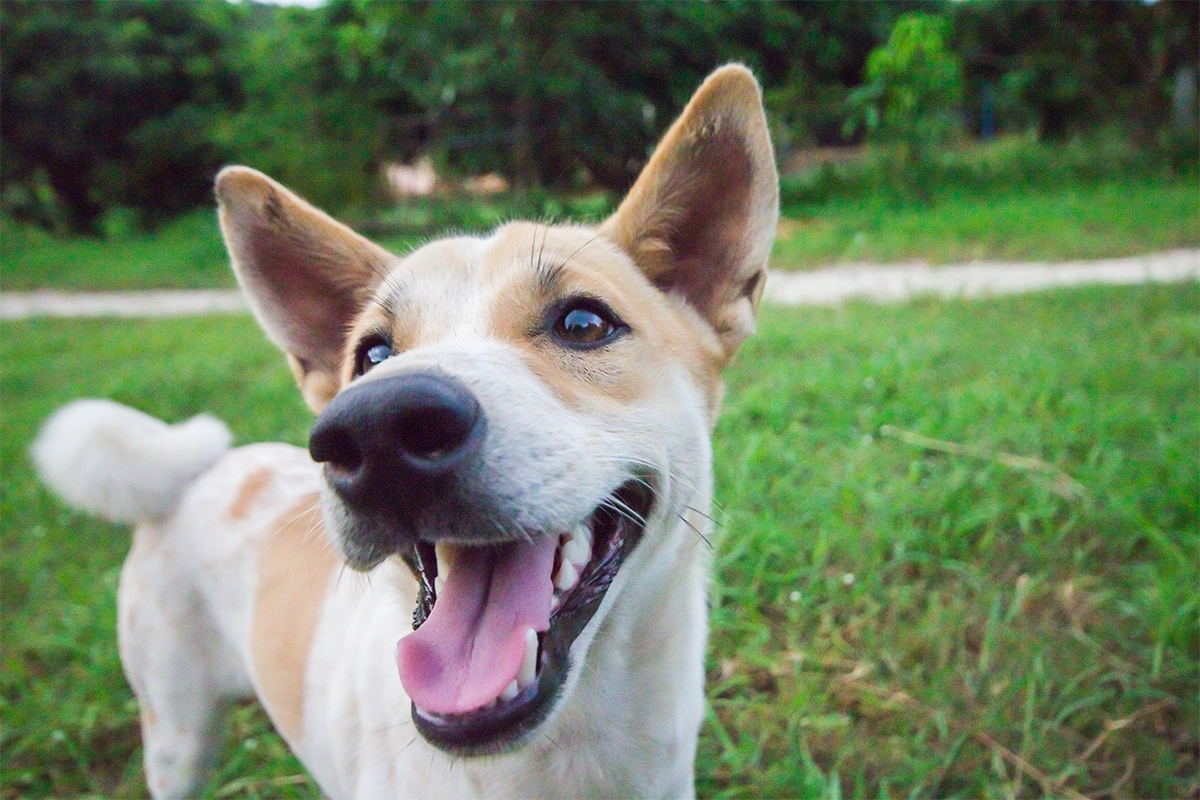Your dog’s teeth are just as important to your dog as your teeth are to you. For one, your dog, like you, needs strong, healthy teeth to eat food. Additionally, your dog’s teeth, like yours, when neglected, can lead to periodontal disease, and tooth decay. Oral health problems can eventually result in more dire health consequences (including death in extreme cases). Learn exactly why your dog’s teeth are so important and how to keep them clean and healthy.
Keep Your Dog’s Breath Fresh
Have you ever heard someone say that something smells like “dog breath”? It’s not a compliment; however, dogs don’t naturally have bad-smelling breath. Stinky dog breath comes as a result of bacteria or plaque buildup in your dog’s mouth.
When your dog’s teeth aren’t regularly cleaned with brushing and daily dental chews, bacteria gather. The accumulation of bacteria hardens, allowing another layer of bacteria to grow over it. Eventually, your dog’s teeth have a yellow and brown accumulation of plaque that causes your dog’s breath to stink.
Protect Your Dog’s Oral Health
If bad breath was the only consequence of neglecting your dog’s teeth, then teeth might not be considered so important; however, bad breath is just the first indicator that your dog’s teeth are in need of care, so bad breath should be taken as a warning of worse things to come if a care regimen isn’t implemented immediately.
Your dog’s overall oral health will eventually suffer if the teeth are not given proper attention. When left untreated, plaque and tartar buildup lead to gum infection or gingivitis. At this stage, your dog may start losing teeth as dog’s teeth lose calcium and density and become weak when infected.
The next stage is periodontal disease, which can be both painful and dangerous for your dog. Signs of periodontal disease include:
If your dog’s teeth get to the point in which they are diseased, then the rest of your dog’s organ systems and overall health are at high risk.
Healthy Dog Teeth Help Prevent Heart Disease
Once progressed, the bacteria associated with periodontal disease can cause bacteremia, which is what happens when the bacteria are present in your dog’s blood stream. This increase in inflammation forces your dog’s immune system to work round the clock to stave off infection.
At this point, too, your dog’s organ systems are at risk, particularly the heart. Bacteria gets into the heart valves causing a potentially fatal disease known as endocarditis. The causal link has been made between bacteria found in the heart and in the gums.
Dogs with advanced-stage periodontal disease are six times more likely to get endocarditis. Dogs with endocarditis are sadly unable to have some of the important medical procedures that could fully clean their teeth. Such procedures put their heart and life at risk.
Lessen the Severity of Diabetes
Another substantial health issue that may be caused by periodontal disease and that is known to be worsened by it is canine diabetes. Studies show that 1 in 300 dogs will develop diabetes during their lifetime; studies also show that number is rising.
The inflammatory immune response caused by bacteremia in dogs with severe periodontal disease is linked to increasingly worse diabetes in dogs as the bacteria negatively impact blood-sugar regulation. Diabetes is a serious health condition that is not only costly to treat but that can lower your dog’s lifespan.
By getting periodontal disease under control, though, and by maintaining your dog’s oral health, the diabetes condition is much more easily managed.
Healthy Dog Teeth Maintenance Tips
Maintaining your dog’s teeth is thankfully easy. Even if you don’t already have a dental regimen in place, it’s never too late to start one. Though it might take a while to get both you and your dog used to regular teeth brushings, you can start you dog off with a natural daily dental chew. Dental chews are a safe, healthy, tasty way to clean your dog’s teeth.
Brushing, is of course, still important. Brushing starts with getting your dog used to having their gums touched. If there’s already infection, this might be painful, so you may need your veterinarian to help you with initial cleaning.
If your dog’s teeth aren’t infected then you can practice lifting your dog’s jowls and examining their teeth and touching their gums lightly with your finger (finger brushing). This will also allow you to examine their teeth near the gumline, which is where most of the plaque buildup occurs.
After your dog is accustomed to you touching their gums, then you can introduce the toothbrush. Use a toothpaste made specifically for dogs. Let your dog taste the toothpaste first (try to find one your dog likes) before diving in with the toothbrush.
Brushing is often slow-going at first. You may only be able to brush for a handful of seconds at first, but eventually, you can build up to longer and to daily brushings. It’s worth the effort because as you now know, your dog’s teeth are so important for your dog’s overall health.
We love our dogs as much as you love yours, which is why we know that your dog’s teeth are as important to you as ours are to us. To help our dogs (and yours) live long, healthy lives, we at WHIMZEES® created tasty, natural daily dental chews to help all dogs maintain healthy teeth and gums.



